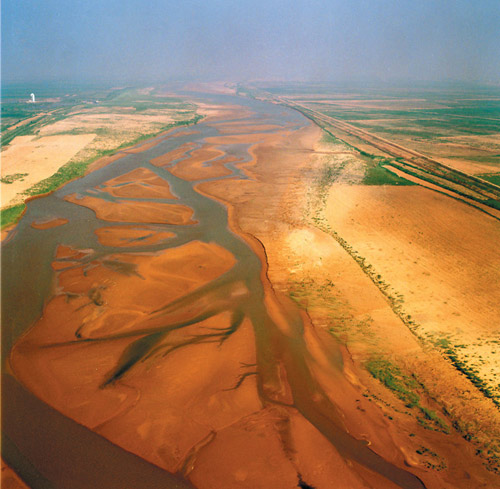Going where the blogs take me and I should add a DISCLAIMER: All the pictures featured on this page belong to their respective owners. If you see your picture featured and don't want it to be, email me with link and I will take it down right away.
Saturday, March 13, 2010
Disappearing soil
Fertile soil is being lost faster than it can be replenished and will eventually lead to the “topsoil bank” becoming empty, an Australian conference heard.
.
Chronic soil mismanagement and over farming causing erosion, climate change and increasing populations were to blame for the dramatic global decline in suitable farming soil, scientists said.
.
An estimated 75 billion tonnes of soil is lost annually with more than 80 per cent of the world's farming land "moderately or severely eroded", the Carbon Farming conference heard.
.
A University of Sydney study, presented to the conference, found soil is being lost in China 57 times faster than it can be replaced through natural processes.
.
In Europe that figure is 17 times, in America 10 times while five times as much soil is being lost in Australia.
.
Soil is also a valuable store of carbon and can release the greenhouse gas if it is ploughed or dug up.
.
The conference heard world soil, including European and British soils, could vanish within about 60 years if drastic action was not taken.
.
This will lead to a global food crisis, chronic food shortages and higher prices, the conference heard.
.
Despite better than average farming practices, European soil might last for 100 years if no further damage occurs worldwide, scientists said.
.
In reality, however, increased land pressures aimed at compensating global production losses would likely mean it will run out faster, they added.
.
Last September the government launched new plans to protect the nation's soil which included farmers being asked to use less fertiliser.
.
Britain imports about 40 per cent of all its food it consumes, a figure that has steadily risen over the past few years.
.
Almost £32 billion of food was imported into the UK in 2008 up from more than £27.7 billion the year before.
.
John Crawford, professor of Sustainable Agriculture at the University of Sydney, who presented the study, said it was unknown how long soil will last.
.
It could be as little as 60 years and that is a scary figure because it is not obvious that we have time to reverse decline and still meet future demands for food, he said.
.
It is not an exaggeration to say that soil is the most precious resource we have got, and... (we) are not up to the task of securing it for our children never mind our grand children.
.
Prof Crawford, the former chair of the UK Biotechnology and Biological Sciences Research Council’s Agri-Food Committee, said restoring soil required several factors.
.
These factors include minimum ploughing, improved management and "resting" soil by covering crops which helps replace carbon in soil.
.
It can however, take decades to significantly increase the amount of useful carbon in soil, which helps make it fertile.
.
While organic farming could be part of the answer, he said there was "no clear evidence that we can feed the current population using organic approaches, never mind meeting demands in time".
.
Latest forecasts predict the world's population will grow from 6.8 billion to more than 9 billion by 2050, placing even further pressure on food production and farming.
.
The world last year faced a cereal crisis as wheat stocks dropped to a 30-year low after demand for wheat and rice outstripped supply for the past six out of the previous seven years.
..
This resulted in grain prices rocketing, which sparked civil unrest in many countries.
.
Extreme evidence of how soil is being eroded was seen in September when Sydney was blanketed by its worst dust storm in 70 years
.
Telegraph
Subscribe to:
Post Comments (Atom)

No comments:
Post a Comment